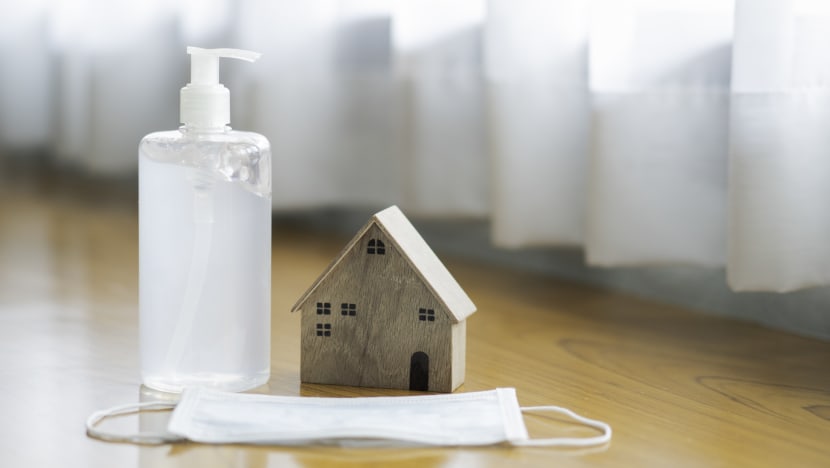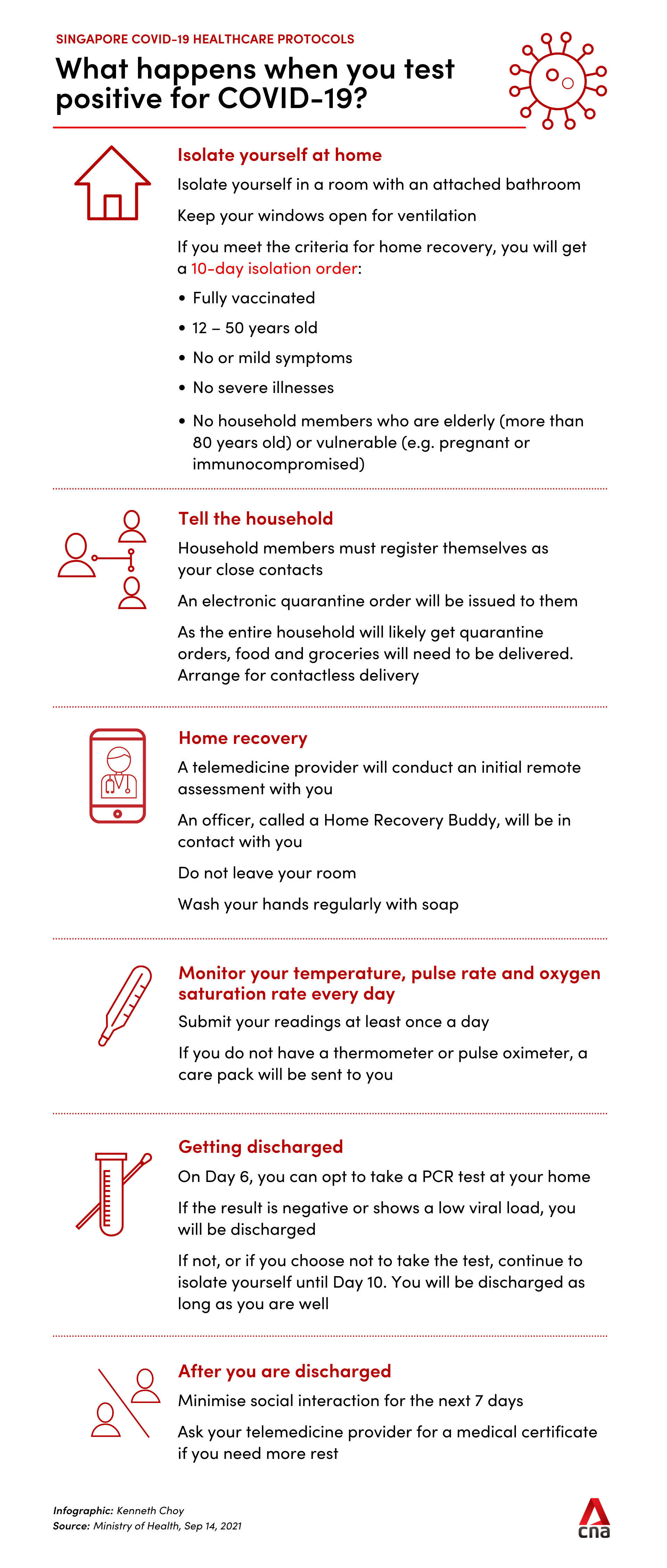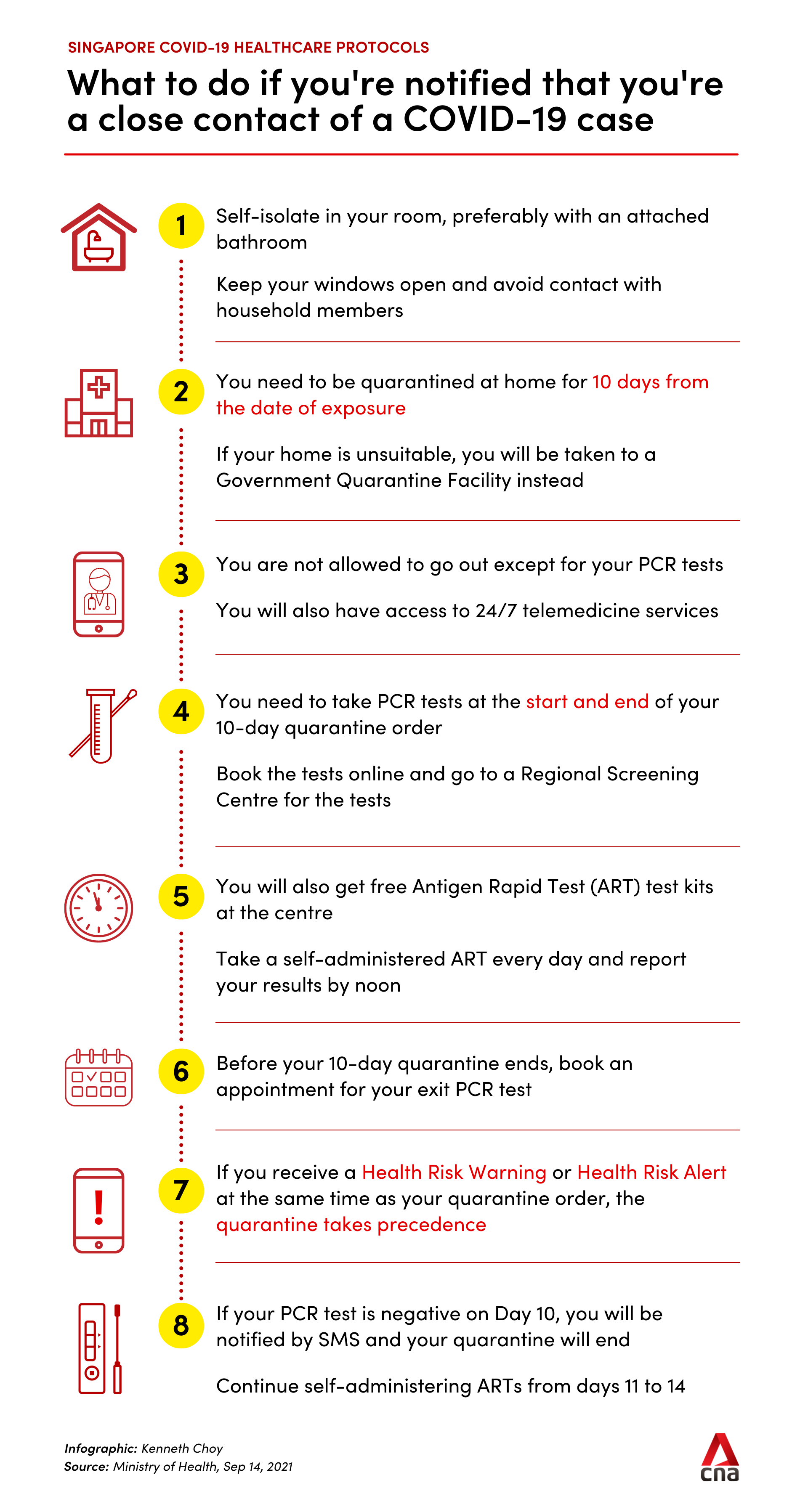Recovering from COVID-19 at home: What you need to know

Home recovery will be the default care management model for eligible COVID-19 patients. (Photo: iStock)
SINGAPORE: More COVID-19 patients will be able to recover at home from Saturday (Sep 18) after the Ministry of Health (MOH) expanded it to include people up to 69 years old who are fully vaccinated.
It was previously announced that home recovery would be the default care management model for eligible patients less than 50 years old.
Data continues to show that fully vaccinated people are less at risk of severe illness, especially those under the age of 70 years, said MOH on Friday.
"This allows more COVID-19 patients to recover within the comfort of their homes, and for us to further direct our hospitals resources to those who really need more intensive care."
Here's what you need to know:
HOW DO I KNOW IF I AM ELIGIBLE FOR HOME RECOVERY?
As soon as a person tests positive for COVID-19, home recovery can start immediately if they meet these requirements:
- Fully vaccinated
- Aged 12 to 69 years old
- No severe comorbidities or illnesses
- Able to self-isolate in a room, preferably with an attached bathroom
- Have no household members who are more than 80 years old, or are in one of the vulnerable groups. This includes those who are pregnant and those with weakened immune response or multiple comorbidities
DO I NEED TO GO TO A HOSPITAL FIRST?
There is no need to go to a hospital or community care facility if an infected individual fulfils the requirements above.
On the first day of their home recovery, patients will have to undergo an initial remote assessment by a telemedicine provider to ensure that they are clinically well.
They will then be issued with an isolation order of 10 days and may be tagged with an electronic monitoring device to ensure they remain in their designated room at home.
The room should be well-ventilated and have the windows open.
CAN CHILDREN WITH COVID-19 ALSO RECOVER AT HOME?
Parents are allowed and encouraged to bring their infected children home if they are at least five years old and do not have comorbidities or underlying illnesses.
Last week, the health ministry said that there were requests from parents to bring their infected children home as they are often well with no symptoms, and parents prefer to be able to take care of them at home.
"For these children, they will first be assessed by the hospital to be clinically fit for home recovery, before sending them back home for their recovery journey," added the ministry.
WHAT SUPPORT MEASURES ARE AVAILABLE FOR HOME RECOVERY?
An officer, called a Home Recovery Buddy, will be in touch with the infected individual recovering at home to walk them through the journey, said MOH.
If required, the individual will receive a care pack containing a thermometer, pulse oximeter, surgical masks and hand sanitiser.
"COVID-19 patients should monitor, measure and record their health signs such as body temperature, pulse rate and blood oxygen saturation (SpO2) at least once a day using the care diary provided to them," said the ministry.
When the care pack is delivered, the patient may pass their TraceTogether token to the officer so that their close contacts can be identified for contact tracing purposes, added MOH.
In the event that any medical assistance is required, patients will also have 24/7 access to their designated telemedicine provider.
WILL I BE ABLE TO INTERACT WITH HOUSEHOLD MEMBERS?
The patients must avoid any physical or face-to-face contact with the rest of the household, to prevent any onward transmission of the virus, said MOH. Visitors are also not allowed.
As the household members will most likely all be issued quarantine orders via SMS, there should be an arrangement for contactless deliveries when ordering essential items such as food or groceries.
HOW DO I KNOW IF I HAVE RECOVERED?
On Day 6 of home recovery, the patient may contact their assigned telemedicine service provider to arrange for a polymerase chain reaction (PCR) swab to be done at home.
If the patient’s test result meets the discharge criteria - a negative PCR result or a low viral load - they may be discharged from home recovery on Day 7.
Otherwise, the patient’s home recovery period will end on Day 10 without any further tests, so long that the patient is well, said MOH.
WHAT SHOULD I DO AFTER I'M DISCHARGED?
After discharge, COVID-19 patients will no longer be subject to any movement restrictions, although they are still advised to minimise social interactions for the next seven days, MOH said.
Recovered patients may also request for a medical certificate of up to seven days from their telemedicine service provider, if they require more time to rest.
Related:
BOOKMARK THIS: Our comprehensive coverage of the COVID-19 pandemic and its developments
Download our app or subscribe to our Telegram channel for the latest updates on the coronavirus pandemic: https://cna.asia/telegram
























